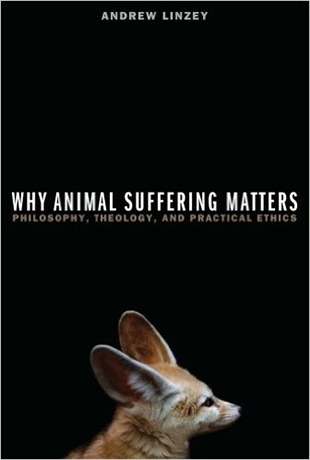"1. The assumption is frequently made that human suffering matters more than any other kind of suffering. This position may not be wholly rational nor supported by rational considerations. At the very least, my argument is that we owe animals more than is commonly supposed.
"2. Those who wish to justify or minimise animal suffering frequently argue that animals are different from humans. But the question is whether any of these are morally relevant differences that could justify differential treatment (1.1).
"3. My concern is not to dispute the accuracy of these differences, but rather to show that the moral conclusions drawn from these differences are almost entirely mistaken, and that another completely opposed conclusion follows (1.2).
4. Six putative differences are considered for their moral relevancy:
"(i) Animals are naturally slaves either by the design of nature or by divine providence. This argument, stripped of inessentials, is about power and whether power can be its own self-justification. It cannot stand, by itself, as a ground for refusing moral solicitude to animals, but should rather, at least on one mainstream theological account, be reckoned as morally relevant — in favour of increased sensitivity to the weak and the vulnerable (1.2.i).
"(ii) Animals are non-rational beings. The argument only works if it can be shown that rational comprehension increases liability to suffering and is therefore morally relevant. In some cases, rational comprehension may increase suffering, but there are grounds for supposing that incomprehension may also increase liability to suffering in others. Animals and humans suffer in varying ways. Humans will suffer more in some situations, animals more in others (1.2.ii).
"(iii) Animals are linguistically deficient. Possession of a language that humans can understand may unlock a richness of experience but so, too, may the possession of a complex range of non-human characteristics, as well as a symbolic language that we cannot understand. Even if the minimalist picture of animals as linguistically deficient, 'primitive' beings is true, it doesn't follow that their suffering isn't as significant for them in their own terms as ours is for us (1.2.iii).
"(iv) Animals are not moral agents. Our moral superiority (in the sense of possessing moral agency) should more reasonably be displayed by acknowledging duties to animals that they cannot acknowledge towards us. The absence of moral agency renders the case of animals problematic, since animal suffering is necessarily unmerited and undeserved, and we are unable to justify it by most traditional reasoning (1.2.iv).
"(v) Animals are soulless. According to traditional theology, animals do not have rational and, therefore, immortal souls. But beings that will not be recompensed in another world for their suffering in this one logically deserve more, not less, moral solicitude (1.2.v).
"(vi) Animals are devoid of the divine image. The consensus of Old Testament scholars now locates the meaning of the image within the biblical narrative that sees humans as divinely commissioned to look after the world and other animals. Moreover, if a Christological understanding of power is engaged, human power over animals means responsibility, even service (1.2.vi)."
